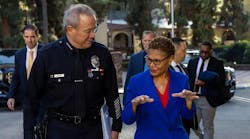I was attending a Halloween party last week and, as tends to happen, met a few veterans from various services. As an Army veteran I feel required by veteran law, to give grief to veterans of other branches. In all fairness, they give back as good as they get. We’ve earned the right. We served.
Then there was the guy standing there who said, “My dad was in and that’s the same, right?”
Um, NO. It’s not.
Then he said, “I almost went in, but I couldn’t get the job I wanted.”
That’s a shame. Sorry your military dreams died before you ever raised your hand, but that doesn’t make you a veteran. “Almost” only counts in horseshoes, hand grenades and nuclear warfare.
So there’s that group of veterans, all giving each other grief, laughing and joking, and in steps this guy who wants to join the fun, but sadly (for him) he hasn’t earned the right. He doesn’t get to give us grief and when he tries, he finds himself facing a team of veterans, all saying, “Step back. This isn’t your party.”
For all those who have served, thank you for your service. Thank you for having stepped up, taken the oath and stood in the gap. For all of you who are military veterans and who now serve behind a badge, thank you twice.
Let’s take a minute now and consider what makes some suited to serve and others not. The military has its sorting process. They’ll take anyone old enough, but not too old, who can pass the Armed Services Vocational Aptitude Battery (ASVAB) test, and who can get through whatever version of basic training, meeting the minimum learning and fitness standards. Once in their job position, there is strict discipline and oversight and their first few years determines whether they’ll reenlist, gradually making it a career, or take their honorable discharge and move on to an applicable career in the civilian world.
The selection process for law enforcement is very different, much more in depth, and – potentially – very wrong. (Yeah, I know. Those last two words makes some folks wonder about my sanity, but I’ll explain.)
We preset educational requirements and, dependent on the agency, may not even accept honorably discharged veterans because they don’t have a college degree. The high school diploma is a universal requirement, as is American citizenship (so far). But here sits that 20+ year old applicant with three or four years of honorable military service, and if he doesn’t have a college degree, some agencies automatically disqualify him.
Assuming the applicant meets the age, citizenship and educational requirements, they’ll usually be given a written test and, while there’s no pass or fail standard, there are usually more applicants than available positions, so the hiring agency can simply select the top whatever number of people from the testing. Ten open positions; 50 people took the test; agency recruiter takes the top 20 and invites them to move on to the physical fitness test.
Wait … that’s how it used to be. Now we might see the numbers reversed where there are 50 openings and only 20 applicants. Then the agency better pay attention to those test scores and predetermine what’s the minimum they’ll accept. It wouldn’t look good, down the road, for an officer to get sued (for anything) and have it brought up in the civil trial that they scored 35% on the written test, but the agency was so desperate for manpower that they hired them anyway; after all, they passed every other part of the selection process, right?
The applicant passes the written test, the fitness test and the oral board. They pass the polygraph, the criminal background check, the psychological profile examination and the drug test. Their school records from high school and college are clean. They’ve never received any disciplinary action and their attendance records are good. Their communication skills are good and, by all accounts, they’re good people. Their character references vouch for them from family to friends to neighbors.
They go to the academy and do well. When it comes to defensive tactics training they may not be the most aggressive; they might be hesitant even. During force-on-force training they seem slow to pull the trigger and their fear of any type of discomfort seems to almost outweigh their ability to do what needs to be done.
Then comes that day on the street when something ugly happens and that officer has to run toward the sound of shots; they have to run into the danger; they have to act in a courageous and aggressive fashion, not hesitating to deploy potentially deadly force. And they find they can’t do it.
It’s only then that an agency realizes they hired the wrong applicant. It’s only then that the agency realizes not everyone is suited for the job no matter how pristine they look in the hiring process. It’s only then that someone at the agency begins to realize that, just perhaps, there’s something undefinable that is required to be a strong and competent officer.
That undefinable thing is some part of the soul or spirit. It’s some part of the person’s character that doesn’t allow them to quit; to back down; to run from the threat. It’s the part of them that is constantly displayed through their behavior, but sometimes that behavior isn’t in compliance with the rules. Why would that be?
Not every circumstance can be accounted for by the rules, which means that sometimes an officer will find himself in a situation which calls for a solution outside the rules. Even the willingness to step outside the box, to act outside the rules… that takes a strength of character that may not be demonstrable through a life of constantly living within the rules and expectations of society.
We have to find a way to identify and accept that so far undefinable characteristic. We need to recognize it and balance it against all of the measurable preset qualifications we usually place on applicants. Until we do, we won’t be able to identify those who just aren’t suited for the work.



